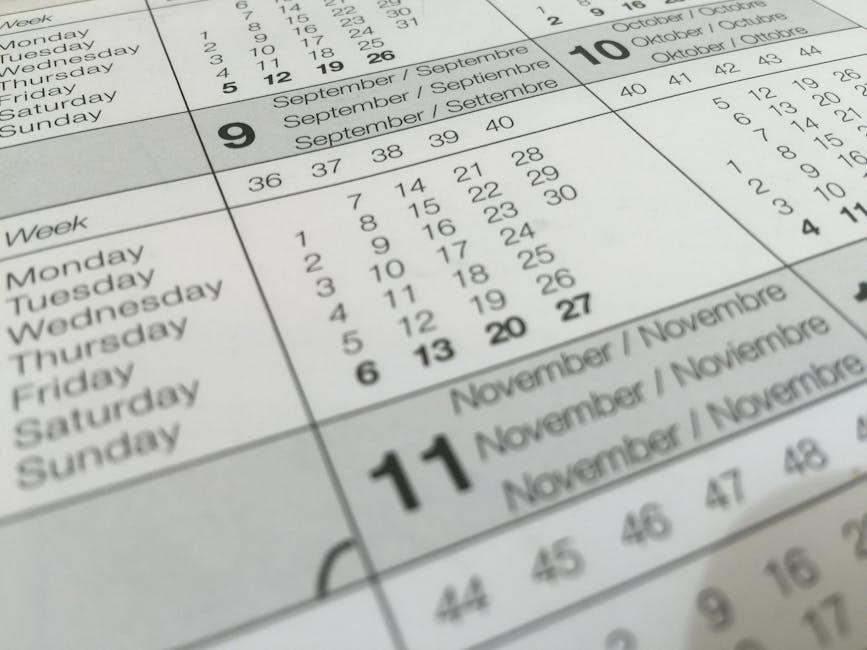Year 2 English worksheets are essential for developing foundational literacy skills, offering structured activities in grammar, reading, and writing. Available as free PDFs, they provide engaging exercises designed by educators to support Year 2 students in building confidence and achieving academic success.
1.1 Importance of Year 2 English Worksheets
Year 2 English worksheets play a vital role in enhancing literacy skills, providing structured activities tailored to curriculum needs. They focus on grammar, reading, and writing, helping students build confidence and fluency. These resources are designed to reinforce foundational concepts, ensuring a strong academic base. With free PDF options available, educators and parents can access high-quality materials without cost. Worksheets cater to diverse learning styles, offering engaging exercises that make learning enjoyable. Regular practice with these tools improves comprehension, vocabulary, and creative expression, preparing students for future challenges. By incorporating these worksheets into daily routines, learners develop consistency and independence in their English skills, fostering long-term educational success.
1.2 Structure of the Worksheets
Year 2 English worksheets are thoughtfully structured to cover a variety of skills, ensuring a comprehensive learning experience. They typically include sections on grammar, reading, and writing, with activities tailored to specific learning objectives. Grammar-focused exercises might cover nouns, verbs, adjectives, and punctuation, while reading sections often feature phonics and comprehension tasks. Writing activities encourage creative expression and spelling practice, often through fun and engaging prompts. Many worksheets are available in PDF format, making them easy to download, print, and use at home or in the classroom. This structured approach ensures that students can progress steadily, building confidence and mastery of key English skills. Worksheets are designed to be interactive and adaptable, catering to different learning styles and needs.

Grammar Skills
Year 2 English worksheets focus on essential grammar skills, including nouns, verbs, adjectives, and punctuation. Activities like identifying word types and correcting sentences help students master these concepts through engaging exercises and puzzles.
2.1 Capital Letters
Year 2 English worksheets emphasize the correct use of capital letters to help students understand their importance in writing. Activities include identifying and writing capital letters, such as at the beginning of sentences or in proper nouns like names and places. Worksheets often feature exercises where students must capitalize letters in sentences or identify incorrectly used lowercase letters. These tasks are designed to reinforce the rule that capital letters are used for specific purposes, such as starting a sentence or denoting titles. Many free PDF resources include interactive and printable activities, making learning engaging and accessible for young students. By practicing with these worksheets, children build a strong foundation in punctuation and grammar skills.
2.2 Punctuation
Year 2 English worksheets focus on teaching students the correct use of punctuation to enhance their writing skills. Activities include identifying and placing punctuation marks such as full stops, question marks, commas, and exclamation points. Worksheets often feature exercises where students complete sentences by adding missing punctuation or choosing the correct mark for a given sentence. These tasks help students understand the role of punctuation in conveying meaning and structure in written language. Many free PDF resources provide interactive and printable exercises, making learning fun and accessible. By practicing punctuation, children develop essential grammar skills that improve their ability to communicate effectively in writing. These activities are designed to be engaging and easy to follow for young learners.
2.3 Verbs
Year 2 English worksheets emphasize the importance of understanding and using verbs effectively. Verbs are action words that describe what is happening, and worksheets often include activities like identifying verbs in sentences, matching verbs to pictures, and creating short sentences using verb forms. Many free PDF resources provide exercises on regular and irregular verbs, as well as verb tenses such as past, present, and future. These activities help students recognize the role of verbs in conveying action and movement. Interactive and printable worksheets make learning verbs engaging, while also reinforcing grammar rules. By practicing with these exercises, students gain confidence in using verbs accurately and creatively in their writing. These resources are designed to make learning fun and accessible for young learners.
2.4 Nouns
Nouns are a fundamental part of language, representing people, places, objects, and ideas. Year 2 English worksheets focus on helping students identify and understand the different types of nouns, such as common nouns (e.g., cat) and proper nouns (e.g., Sarah). Activities include matching nouns to pictures, filling in the blanks with the correct noun, and creating simple sentences. Worksheets also introduce plural nouns, teaching students how to add endings like -s or -es to form plurals. Interactive exercises, such as word searches and labeling tasks, make learning engaging. These resources are designed to help students recognize the importance of nouns in communication and build a strong foundation for more complex grammar concepts. Free PDF worksheets provide a convenient way to practice noun identification and usage at home or in the classroom.
2.5 Adjectives
Adjectives are words that describe or modify nouns, providing details about their qualities, such as size, color, or emotion. Year 2 English worksheets focus on teaching students to identify and use adjectives effectively. Activities include matching adjectives to pictures, completing sentences with the correct adjective, and creating descriptive paragraphs. Worksheets often feature fun exercises like word searches or labeling tasks to make learning engaging. Students learn to distinguish between comparative adjectives (e.g., bigger, happier) and superlative adjectives (e.g., biggest, happiest). These resources help students enhance their descriptive language skills, improving both their writing and speaking abilities. Free PDF worksheets offer a practical way to practice adjective usage at home or in the classroom, ensuring a solid foundation for future grammar lessons.
2.6 Connectives
Connectives are words or phrases used to link ideas, sentences, or paragraphs together, helping to create clear and coherent writing. Year 2 English worksheets focus on teaching students to use connectives effectively, such as and, but, so, because, and therefore. These exercises often include matching games, fill-in-the-blank sentences, and creating short stories using connectives. Worksheets also cover different types of connectives, such as time connectives (e.g., first, next, then) and reasoning connectives (e.g;, if, unless). By practicing with these resources, students learn to structure their writing logically and express their ideas more clearly. Free PDF worksheets make it easy to practice connectives at home or in the classroom, reinforcing this essential grammar skill.

Reading Skills
Year 2 English worksheets focus on enhancing phonics, comprehension, and vocabulary building through engaging activities. These resources include reading passages, word matching games, and exercises to improve fluency and understanding.
3.1 Phonics
Phonics is a cornerstone of Year 2 English worksheets, focusing on decoding words through sound recognition. Activities include identifying rhyming words, blending sounds, and segmenting syllables. Free PDF resources offer engaging exercises, such as word building and phoneme matching, to enhance reading accuracy. These worksheets are designed to make learning interactive and enjoyable, ensuring students grasp foundational skills needed for fluent reading. By practicing regularly with these materials, children can improve their ability to recognize and reproduce sounds, laying a strong base for future literacy success. Phonics worksheets are tailored to meet curriculum standards, providing both fun and educational value.
3.2 Comprehension
Comprehension exercises in Year 2 English worksheets help students understand and interpret written texts effectively. These activities often include short reading passages followed by questions that test students’ ability to identify main ideas, supporting details, and make inferences. Free PDF resources provide engaging stories, poems, and informational texts designed to capture young learners’ interest while enhancing their reading skills. Worksheets may also include true/false questions, sequencing activities, and summarization tasks to deepen understanding. By practicing comprehension regularly, students improve their ability to engage with texts and extract meaningful information, which is vital for academic success. These exercises are carefully crafted to align with curriculum goals, ensuring students build a strong foundation in reading comprehension.
3.3 Vocabulary Building
Vocabulary building is a key focus in Year 2 English worksheets, designed to expand students’ word knowledge and improve their ability to use language effectively. Free PDF resources offer a variety of engaging activities, such as word searches, crossword puzzles, and matching games, to introduce new words and reinforce their meanings. These exercises often include contextual sentences, synonyms, and antonyms to help students understand how words function in different contexts. Additionally, many worksheets incorporate themed vocabulary related to topics like seasons, animals, or everyday objects, making learning fun and relevant. By practicing vocabulary regularly, students develop a stronger command of language, which enhances their reading, writing, and communication skills. These activities are tailored to meet curriculum goals and keep young learners motivated and excited about language learning.

Writing Skills
Writing skills in Year 2 English worksheets focus on creative writing, sentence structure, and spelling practice. Free PDF resources provide structured activities to help students express ideas clearly and confidently.

4.1 Creative Writing
Creative writing activities in Year 2 English worksheets encourage students to express their imagination and develop storytelling skills. These exercises often include fun prompts, such as writing about magical creatures or their favorite seasons. Many free PDF resources provide engaging tasks like composing short stories, poetry, or descriptive paragraphs. Interactive worksheets may also feature colorful illustrations to inspire creativity. For example, students might describe a picture or complete a story starter. These activities not only enhance writing skills but also foster a love for self-expression. Additionally, some worksheets incorporate drawing or coloring elements, making learning both enjoyable and interactive. Creative writing in Year 2 helps build confidence and lays the foundation for more complex writing tasks in later years.
4.2 Spelling Practice
Spelling practice is a key component of Year 2 English worksheets, helping students master common words and improve their literacy skills. Many free PDF resources offer engaging spelling activities tailored for Year 2 students. These include crossword puzzles, word searches, and tracing exercises designed to make learning fun and interactive. Worksheets often focus on high-frequency words, seasonal themes, or curriculum-specific vocabulary. For example, students might practice spelling days of the week or months of the year through creative exercises. These activities not only enhance spelling accuracy but also build confidence in writing. Parents and teachers can easily download these free PDFs to provide children with regular spelling practice, ensuring a strong foundation in English literacy skills.
4.3 Sentence Structure
Mastering sentence structure is a fundamental skill for Year 2 students, and worksheets provide an excellent way to practice this. Free PDF resources offer a variety of exercises, such as sentence unscramble activities, where students rearrange words to form complete sentences. Other worksheets focus on identifying correct sentence structures, using capital letters, and applying punctuation rules. Interactive activities, such as matching games and fill-in-the-blank exercises, make learning engaging. These resources help students understand how to construct simple, clear sentences and apply grammar rules effectively. Many worksheets also include word cards and activities that encourage creative sentence-building. By practicing with these tools, students develop the confidence to express their ideas clearly and accurately in writing.

Key English Skills
Year 2 English worksheets focus on building foundational skills like identifying days, months, vowels, and nouns. They also cover sentence structure and basic punctuation rules effectively.
5.1 Days and Months
Year 2 English worksheets often include activities focused on identifying and writing the days of the week and months of the year. These exercises help students recognize and spell each day and month correctly, using capital letters appropriately. Many worksheets feature matching games, where students link days to their spellings or arrange months in chronological order. Some activities also involve writing sentences that include days or months, reinforcing their use in everyday language. These exercises are designed to be engaging, with colorful layouts and interactive elements to keep young learners interested. By practicing these skills, students build a strong foundation in time-related vocabulary and its practical application.
5.2 Vowels and Consonants
Year 2 English worksheets often include exercises to help students identify and understand the differences between vowels and consonants. Activities typically involve identifying vowels (a, e, i, o, u) in words, circling or highlighting them, and sorting words into vowel and consonant categories. Some worksheets also focus on word building, where students replace vowels in words to create new words, enhancing phonological awareness. These exercises are designed to be interactive and visually appealing, often featuring colorful layouts and engaging prompts. By mastering vowels and consonants, students improve their reading and spelling skills, laying a solid foundation for more complex literacy tasks. These activities are both educational and fun, making learning enjoyable for young students.
5.3 Singular and Plural Nouns
Year 2 English worksheets often feature activities focused on singular and plural nouns, helping students understand the rules for forming plurals. Exercises include matching singular nouns with their plural forms, filling in the correct plural version of a word, and identifying whether a noun is singular or plural. Worksheets may also introduce common plural rules, such as adding “s” or “es,” and highlight irregular plurals like “children” or “feet.” Many resources incorporate visual aids, such as pictures of objects, to make learning engaging. These activities aim to build a strong grasp of grammar fundamentals, enabling students to use nouns correctly in sentences. Regular practice with these worksheets helps Year 2 students develop consistency and confidence in their writing and communication skills.
5.4 Adjectives and Descriptions
Year 2 English worksheets often include activities focused on adjectives and descriptions to help students enhance their vocabulary and descriptive writing skills. These exercises typically involve matching adjectives to pictures, identifying adjectives in sentences, and creating descriptive paragraphs about objects or scenes. Worksheets may also introduce basic concepts like comparing sizes or emotions using adjectives such as “big,” “small,” “happy,” or “sad.” Many resources incorporate colorful images or prompts to inspire creative writing. By practicing with these materials, students learn to recognize and use adjectives effectively, improving their ability to describe people, places, and things in detail. Regular practice with these activities helps Year 2 students develop a richer and more engaging writing style.
5.5 Question Marks and Punctuation
Year 2 English worksheets often include exercises focused on question marks and punctuation to help students understand their proper use in sentences. These activities typically involve identifying sentences that require question marks, correcting punctuation errors, and creating simple questions using given words or scenarios. Worksheets may also introduce basic punctuation rules, such as using capital letters at the beginning of sentences and proper placement of full stops and question marks. Many resources include interactive exercises, such as matching games or fill-in-the-blank activities, to make learning engaging. Regular practice with these materials helps Year 2 students grasp the importance of punctuation in conveying meaning and improving sentence structure.
5.6 Word Formation Activities
Word formation activities in Year 2 English worksheets aim to enhance vocabulary and spelling skills through engaging exercises. These activities often include adding prefixes, suffixes, or changing word endings to create new words. For example, students might transform “happy” into “happiness” or “run” into “running.” Worksheets may feature word families, such as “-ed” or “-ing” endings, to reinforce these concepts. Interactive tasks like word searches, crossword puzzles, or matching games are commonly used to make learning fun and effective. These activities not only expand students’ word banks but also improve their ability to recognize and manipulate word patterns, which is crucial for both reading and writing proficiency in Year 2.

Benefits of Using Worksheets
Worksheets help students build confidence, establish routines, and engage in interactive learning. They provide structured practice, making complex skills manageable and fun, while fostering independent study.
6.1 Building Confidence
Year 2 English worksheets play a vital role in building confidence in young learners. By providing structured activities, these resources help students master foundational skills like capital letters, punctuation, and creative writing. Interactive exercises make learning engaging, allowing children to progress at their own pace. Worksheets also offer a sense of accomplishment as tasks are completed, fostering self-esteem. Free PDF downloads ensure accessibility for all students, enabling them to practice regularly and feel comfortable with their abilities. This consistent practice not only reinforces classroom lessons but also equips students with the confidence to tackle more challenging tasks independently.
6.2 Developing a Routine
Incorporating Year 2 English worksheets into daily routines provides structure and consistency for young learners. Regular practice helps students develop a strong foundation in literacy skills, such as phonics, comprehension, and grammar. Worksheets offer a variety of activities, from capital letters and punctuation to creative writing, ensuring a well-rounded learning experience. With free PDF resources readily available, parents and educators can easily integrate these exercises into daily schedules. A consistent routine not only enhances academic performance but also fosters discipline and a lifelong love for learning. By dedicating a few minutes each day to worksheet activities, children can steadily improve their English skills in a structured and enjoyable manner.
6.3 Interactive Learning
Year 2 English worksheets offer an engaging way to make learning interactive and fun. Many free PDF resources include activities like puzzles, quizzes, and creative writing tasks that captivate young learners; Interactive elements such as automatically marked exercises and online completion options provide immediate feedback, enhancing the learning experience. These tools encourage active participation, allowing children to explore and practice English skills independently. By incorporating games and hands-on activities, worksheets help students stay motivated and develop a deeper understanding of key concepts. Interactive learning also fosters a sense of achievement, as children can see their progress and celebrate small victories along the way. This approach makes learning enjoyable and effective, helping Year 2 students build confidence in their English abilities.

Resources and Support
Access a variety of free and premium Year 2 English worksheets in PDF format. Additional activities and educational tools provide comprehensive support for effective learning.
7.1 Free Worksheets
Free Year 2 English worksheets are widely available online, offering a variety of activities to support learning. These PDF resources cover key skills such as capital letters, punctuation, nouns, and comprehension. Designed by educators, they provide engaging exercises to build confidence and understanding. Many websites, like Twinkl and Classroom Stars, offer downloadable materials tailored to the curriculum. Parents and teachers can access these free worksheets to create structured lessons or homework activities. Topics range from creative writing to spelling practice, ensuring a comprehensive approach to literacy development. With interactive and printable options, these resources make learning fun and accessible for Year 2 students. They are ideal for reinforcing classroom learning or providing additional practice at home.
7.2 Premium Resources
While free worksheets are an excellent starting point, premium resources offer enhanced learning experiences for Year 2 students. These paid materials often include exclusive, high-quality content designed by education experts. Premium resources may feature interactive activities, detailed lesson plans, and customizable worksheets tailored to specific learning needs. They provide additional support for teachers and parents, ensuring a comprehensive approach to literacy development. Many premium resources include access to video tutorials, audio aids, and progress tracking tools, making learning more engaging and effective. By investing in premium resources, educators can provide students with a richer, more structured learning environment that complements free materials. These resources are ideal for those seeking advanced features and exclusive content to support academic success.
7.3 Additional Activities
To enhance learning beyond traditional worksheets, additional activities can be incorporated to keep children engaged and challenged. These include crossword puzzles, word searches, and quizzes that reinforce key English skills. Many resources offer interactive games and hands-on tasks that align with Year 2 curriculum objectives. These activities are designed to make learning fun and dynamic, encouraging children to apply their skills in creative ways. For example, themed worksheets with puzzles or story-based exercises can captivate young learners. Additionally, interactive learning tools, such as audio aids and video tutorials, can complement worksheet-based learning. These supplementary activities ensure a well-rounded educational experience, keeping children entertained while fostering academic growth. They are ideal for parents and teachers seeking innovative ways to support Year 2 students.
Year 2 English worksheets are a valuable resource for supporting young learners in developing essential literacy skills. With a wide range of free PDF downloads available, parents and educators can access structured activities tailored to the curriculum. These worksheets foster confidence, creativity, and a strong foundation in grammar, reading, and writing. By incorporating engaging exercises and interactive learning tools, they make education both enjoyable and effective. Whether through puzzles, quizzes, or creative writing prompts, Year 2 English worksheets provide a comprehensive approach to learning. Their accessibility and versatility ensure that every child can thrive, making them an indispensable part of early education.
